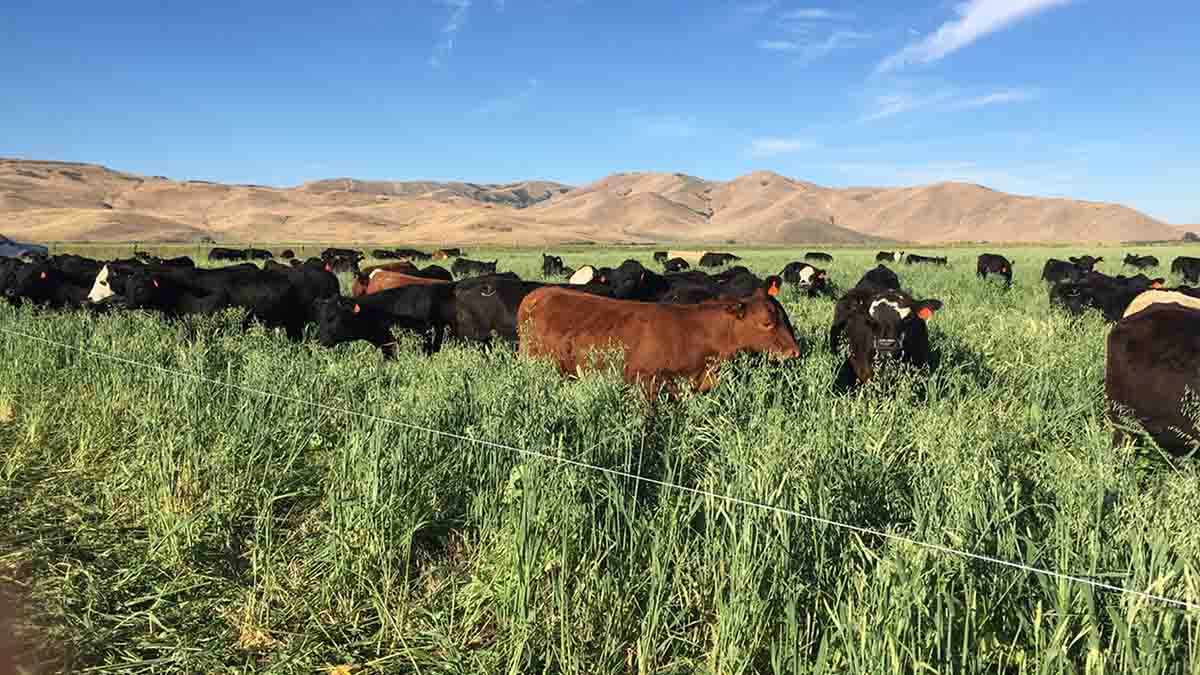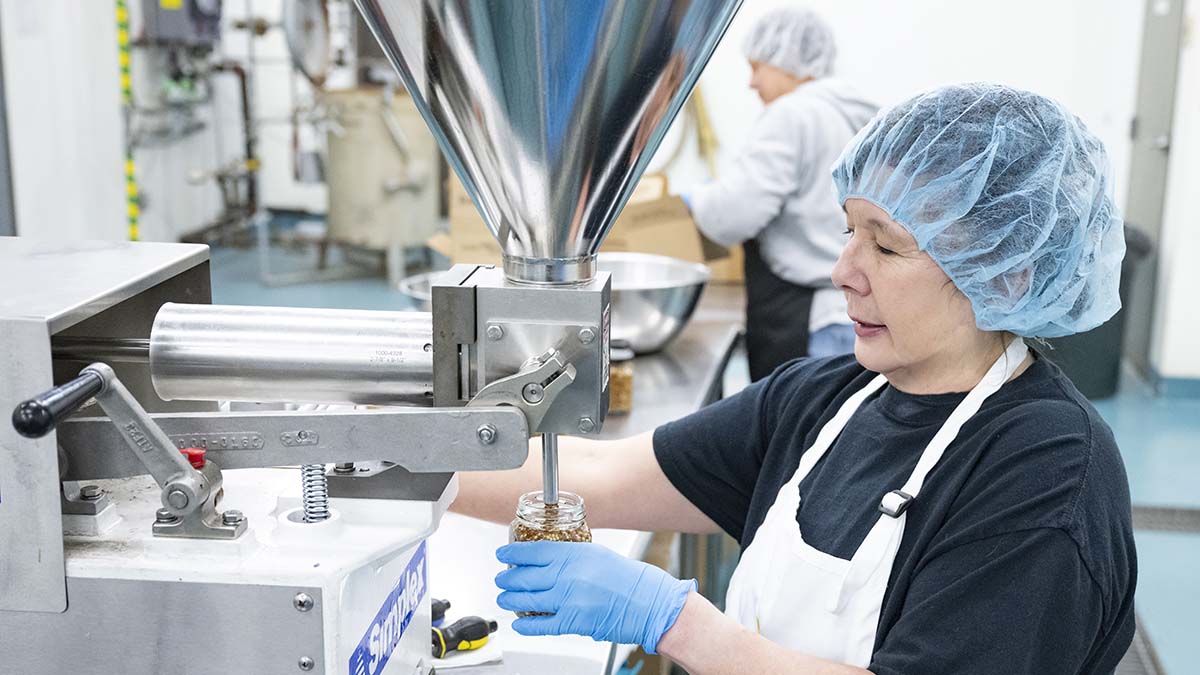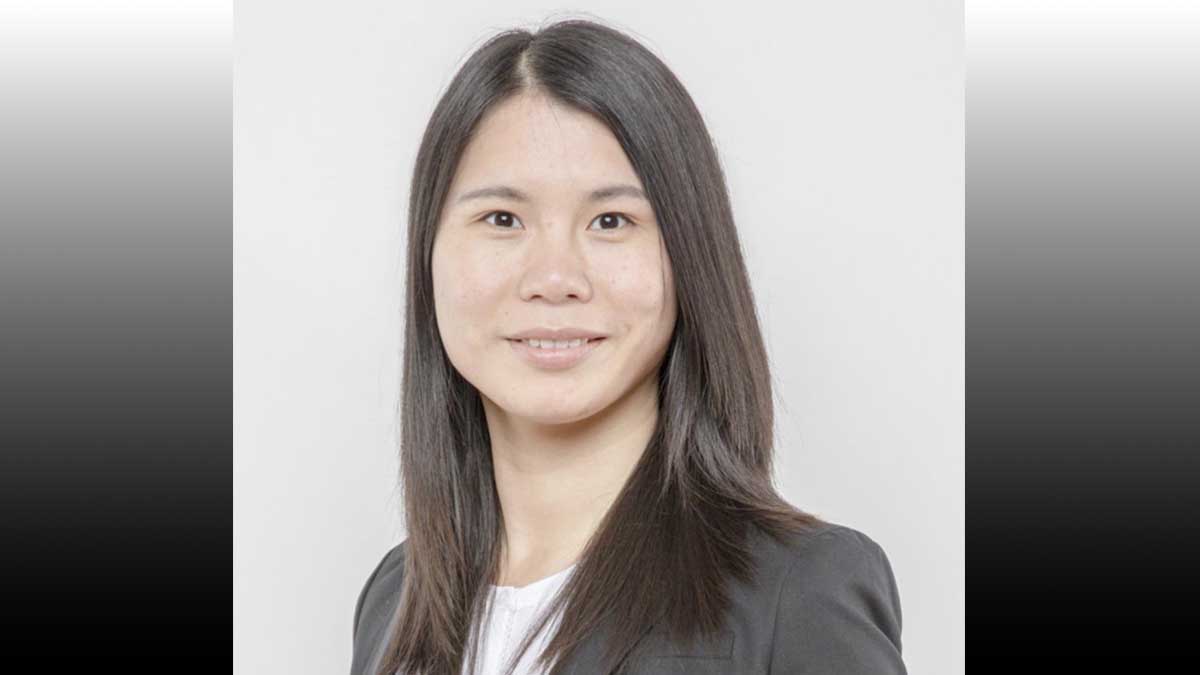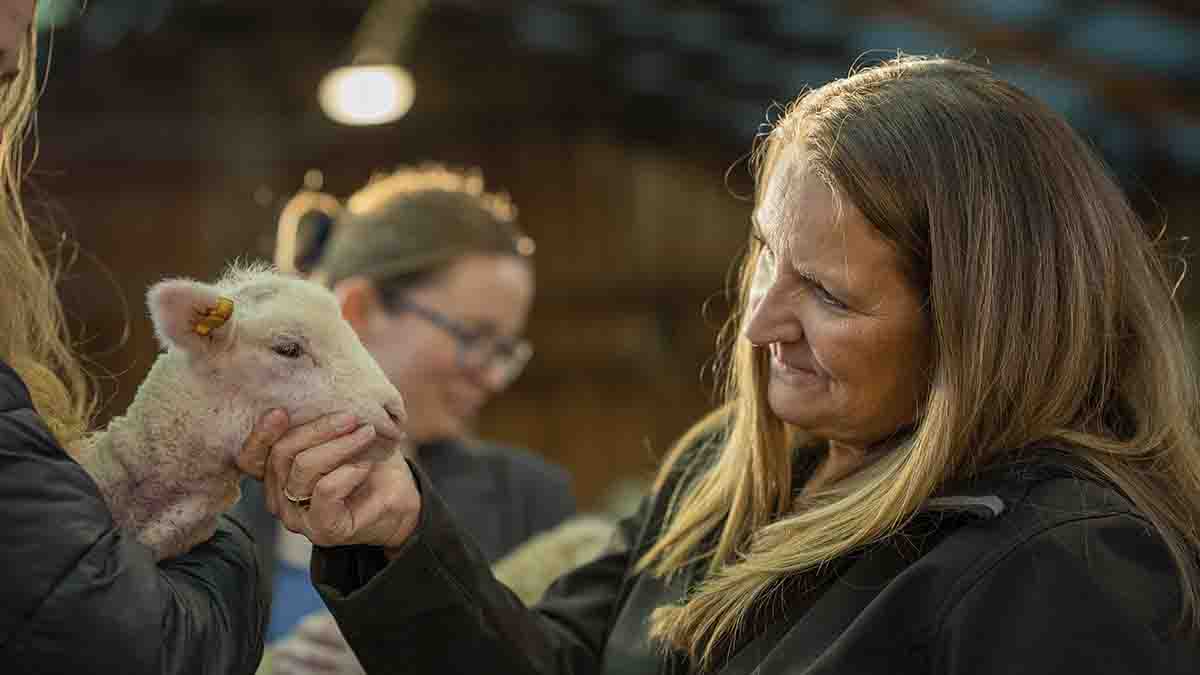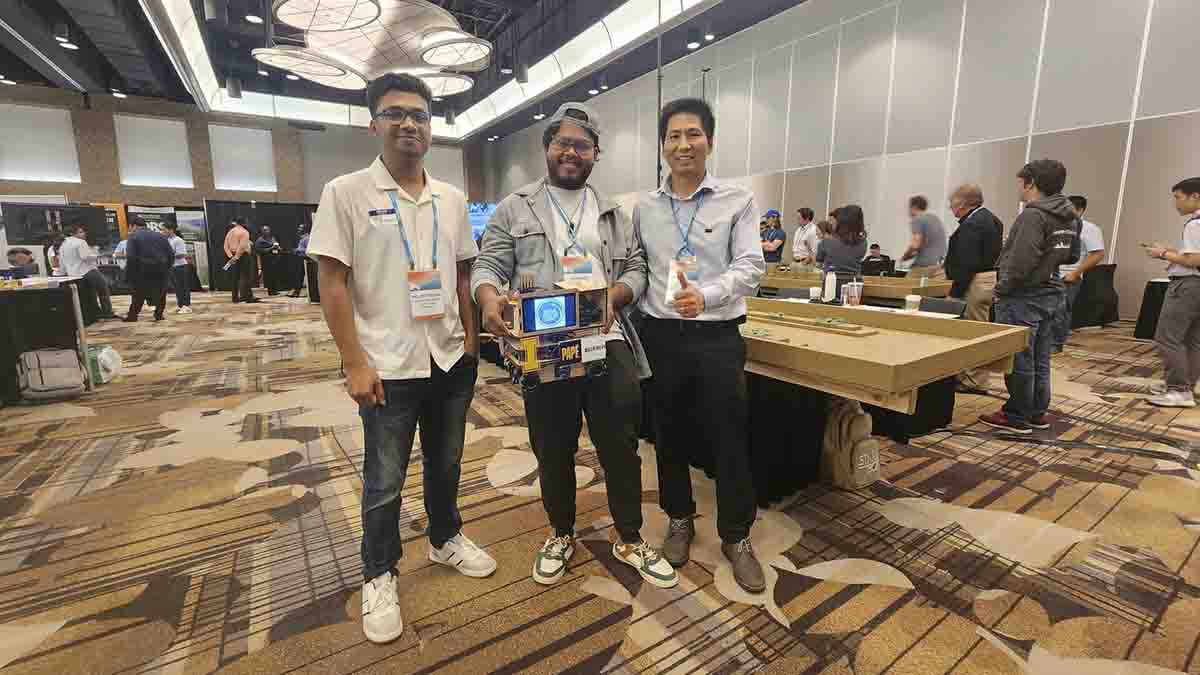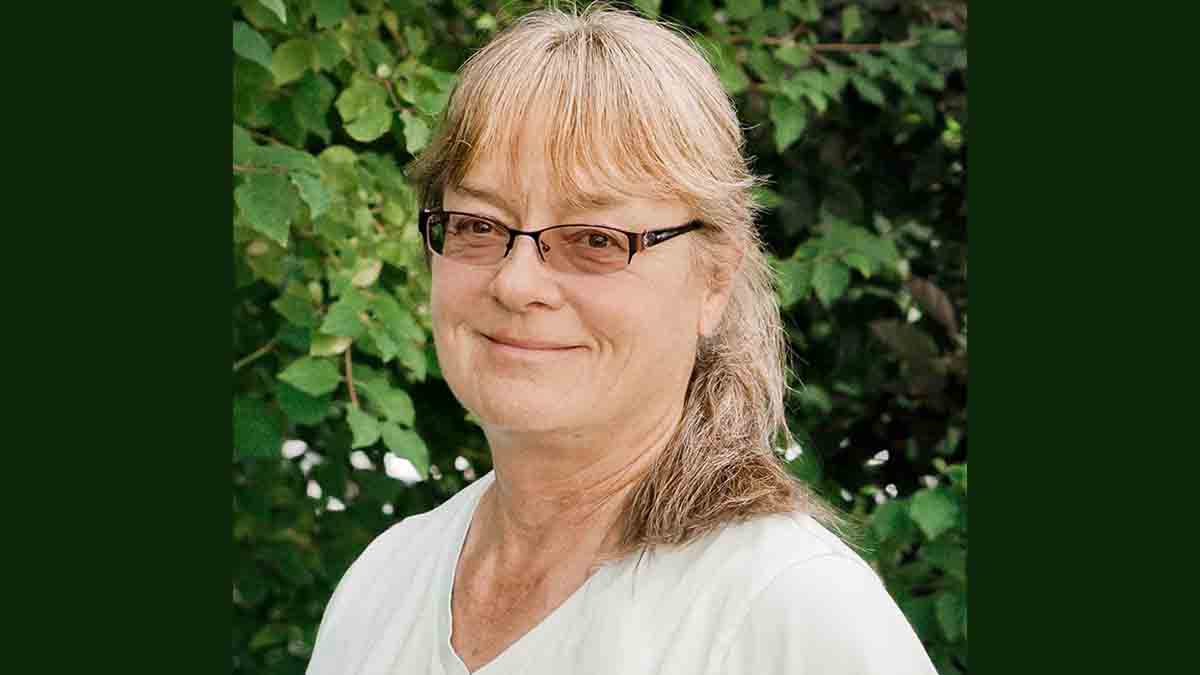Catching Up with CALS — Aug. 21, 2024
Dean's Message — Value of County Fairs
Dr. Brandon Brackenbury recently finished working his first Cassia County Fair and Rodeo as a University of Idaho Extension educator. Before joining Extension in June, however, he spent years building and shaping one of the fair’s major competitions as a volunteer. Brackenbury — who previously served the Magic Valley for 22 years as a large animal veterinarian — was the fair’s dairy superintendent from 2007 to 2019, implementing policies that increased participation in dairy projects by orders of magnitude. The fair had just 11 entries in UI Extension 4-H Youth Development dairy calf projects, mostly from youth with family ties to the dairy industry, when Brackenbury began his tenure as superintendent. He convinced clients at Magic Valley dairies to contribute calves to a dairy pool he created to accommodate 4-H projects, helping the dairy calf program grow to encompass about 100 youth at its peak. Dairymen have also been generous in buying back animals from youth following fair competitions. Seeking to help youth develop speaking skills and increase their knowledge of animal agriculture, Brackenbury began requiring participants in dairy projects to give a brief presentation and answer questions pertaining to animal science. As a result, he’s witnessed countless shy youth evolve into confident speakers, donning professional attire and tackling the toughest of questions without pause. The opportunity to work with youth is the primary motivator for Brackenbury’s bold career change. “What I want to produce is advocates for agriculture, wherever they may end up,” Brackenbury explained.
Brackenbury’s story cuts to the heart of why UI Extension partners with county commissions throughout the state to host fairs. For youth who take on animal projects, fair time is the culmination of months of feeding, grooming and training. Many of them earn thousands of dollars toward college and other goals by selling their animals after showing them in competitions, and potentially earning ribbons. Our faculty and staff celebrate the personal growth of these youth and have come up with creative ways to recognize their efforts. For example, our Department of Animal, Veterinary and Food Sciences will acknowledge the hard work of 4-H youth who complete animal projects for the Latah County Fair, scheduled for Sept. 12-15, by inviting them to a luncheon, featuring Vandal Brand Meats. Other 4-H youth take advantage of the opportunity to showcase talents in family and consumer sciences (FCS), including Dutch oven cooking, sewing, leather craft, ceramics, robotics, cake decorating, quilting, drones, crocheting and other categories. Draw-string bags made of bandanas are among the trendy craft entries for youth ages 5 to 7 involved in our Cloverbuds program.
Especially in smaller counties, all hands must be on deck to pitch in during fair week. Faculty and staff alike begin shifts as early as 7 a.m. and may not head home until after 9:30 p.m. In many cases, entire UI Extension offices temporarily relocate to county fairgrounds during fair week, with employees claiming workspaces in sale barns and wherever else they find an open desk or table. Do the results justify the investment? Consider what fair week has meant to 16-year-old Lizzie Murdock, of Blackfoot. Murdock has raised heifers and steers for 4-H projects since she was 7 years old, and she’s built a college savings by selling them. Murdock, however, insists the money is the least of what she’s gained by raising animals and showing them at the Bingham County 4-H Fair and the Eastern Idaho State Fair in Blackfoot. “I was really shy. I couldn’t even talk to people. I would grab onto my mom’s leg anytime anybody tried to talk to me, and 4-H has really brought me out of my shell and overall made me a better person,” Murdock said. “It’s a really good opportunity for kids to learn hard work and how to use their money wisely.”
The county fair is the backbone of many Idaho communities, unifying one another, promoting rural values and raising awareness of the hard work involved in food production while teaching youth crucial life skills. And the University of Idaho Extension is core to the success of the county fairs throughout the state.

Michael P. Parrella
Dean
College of Agricultural and Life Sciences
By the Numbers
Enrollment is now open to producers interested in participating in the Innovative Agriculture and Marketing Partnership (IAMP). The University of Idaho-led project will receive $55 million from the U.S. Department of Agriculture covering 5 years to build climate-smart markets and increase adoption of climate-smart practices on more than 200 farms in Idaho through the provision of financial and technical assistance to producers with a focus on barley, beef, chickpeas, hops, potatoes, sugar beets and wheat. At least 30% of the project participants will represent underserved communities. Approximately 31,000-70,000 metric tons of carbon dioxide equivalents will be prevented from entering the atmosphere annually while replenishing organic matter in cropland soils as a result of the project. Average program payments are estimated at $60 per acre, dependent on the crop and the practice involved. IAMP is among 141 projects awarded nationwide for a combined investment of up to $3.1 billion under USDA’s Partnerships for Climate Smart Commodities.
Our Stories

IAMP Opens Enrollment
Enrollment in the Innovative Agriculture and Marketing Partnership (IAMP) is now open to qualified Idaho farmers and ranchers.
The University of Idaho-led program offers technical and financial assistance to farmers and ranchers interested in adopting climate-smart agricultural practices while also seeking to create market opportunities for resulting commodities. IAMP is a statewide project focused on reducing climate impact within the production of the state’s top commodities.
Enrollment and partners
The initial application round will run Tuesday, Aug. 13 through Sept. 11. During the initial application period, participants may work with Desert Mountain Grass Fed Beef, the Schitsu’umsh (Coeur d’Alene) Tribe, the Nez Perce Tribe and The Nature Conservancy. Participants may list multiple partners with whom they would be willing to work, but their options may be limited by geographic and commodity priorities of each project partner. At this time, soil conservation districts are not available to partner with applicants. Those interested in working with soil conservation districts are still encouraged to apply, but there may be a delay before applications are processed.
Practices and incentives
IAMP is funded with a five-year, $55 million grant from the U.S. Department of Agriculture — representing the largest award in the university’s history — of which $31 million will go directly to Idaho agricultural producers who implement designated climate-smart practices, including no tillage, reduced tillage, cover cropping, conservation crop rotation, interseeding, prescribed grazing, nutrient management and reduced applied inorganic nitrogen, nutrient management with a 15% replacement of synthetic inorganic nitrogen with manure or compost and biochar application. The Nature Conservancy contributed a $96,327 match. Annual incentives range from $38 to $74 per acre or $1 per head per day for grazing cover crops on enrolled acreage.
Eligibility
IAMP is a statewide program and is open to producers of potatoes, sugar beets, wheat, barley, hops, chickpeas and beef. The project seeks to support underserved farmers and ranchers by giving priority to beginning farmers and ranchers with 10 or fewer years of experience, either independently or in partnership; socially disadvantaged farmers who face racial or ethnic prejudices; farmers and ranchers who are veterans (as defined by the U.S. Department of Veterans Affairs); limited resource farmers with annual gross sales below $100,000; and women farmers and producers, either independently or in partnership.
How to apply
- Producers may apply after applications have opened by clicking on the “participant application” link at iamp.uidaho.edu.
- The application process should take 10 to 25 minutes to complete depending on the number of prospective fields to be enrolled in. Help features are included within the online application.
- Applicants must already be registered with, or be willing to register with, USDA’s Farm Service Agency.
- Applicants should be prepared to either manually identify specific agricultural fields or upload field boundary maps (in KML file format) for prospective fields.
The IAMP project was funded with a five-year, $55 million grant through the U.S. Department of Agriculture’s Partnerships for Climate-Smart Commodities program, award No. NR233A750005G038. The total project funding is $55,096,327, of which 99.83% is the federal share.

Rodent Research
Cow Camp is dark and quiet when Kirby Lau and Harrison Eckard-Garrett emerge from their canvas wall tents with gear in hand at 4:30 a.m.
Their pickup truck rumbles along a rutted, dirt road over sagebrush-covered hills within University of Idaho’s Rinker Rock Creek Ranch, located in the Wood River Valley in the state’s southcentral region. They arrive at their research site just as the sun begins to rise over the Pioneer Mountains. After assembling their kits, they split up to cover more ground, knowing their success rate at trapping rodents has been steadily increasing and it’s likely to be a long morning.
Lau, of North Carolina, is a U of I graduate student seeking a master’s degree in natural resources, with an emphasis on wildlife. The thesis project she began in the fall of 2022 involves studying how applications of the long-lasting herbicide Rejuvra affect sage grouse and small mammal ecology.

Launching Small Businesses
Janine Zacca Zenner created a steady market for most of her father-in-law’s garbanzo bean crop while simultaneously bringing her mother’s family hummus recipe national fame thanks to a day-long University of Idaho class.
Her Zacca Hummus is now stocked nationwide in hundreds of stores and is the brand of choice for the Greek and Mediterranean restaurant chain Gyro Shack. The popular hummus brand, which exclusively sources garbanzo beans raised on the Palouse at Zenner Family Farms, is a success story of U of I’s Caldwell-based Food Technology Center (FTC).
The center provides training, a commercial kitchen, equipment and continued support to aspiring entrepreneurs who make, market and sell packaged food products. Its goal is for clients to eventually outgrow the university facility and expand production elsewhere, as Zacca Hummus has done.
Faces and Places
Xiaoli Etienne, associate professor and Idaho Wheat Commission Endowed Chair in Commodity Risk Management, is the principal investigator and U of I agricultural economists Norm Ruhoff, Andres Trujillo-Barrera, Hernan Tejeda and Brett Wilder are co-principal investigators on a project titled “Cultivating Future Ag Marketing Leaders: A Summer Research and Extension Program on Commodity Marketing and Risk Management.” The project received a five-year, $750,000 grant from USDA’s National Institute of Food and Agriculture to train future leaders in agricultural commodity marketing and risk management by recruiting undergraduate fellows to participate in an eight-week summer training program.
Brenda Murdoch, associate professor of molecular genetics in the Department of Animal, Veterinary and Food Sciences, is co-lead of “RT2T: A Global Collaborative Project to Study Chromosomal Evolution in the Suborder Ruminatia,” which appeared on the cover of the August edition of Nature Genetics.
Johnny Li, assistant professor of precision agriculture and intelligent robotics in the Department of Soil and Water Systems, served as advisor for the Vandal Robotics Team that recently placed second in the beginner team category at the 2024 Agriculture Robotics Student Competition as part of the Annual International Meeting of the American Society of Agricultural and Biological Engineers.
UI Extension Educator Susan Bell retires on Aug. 30 after 40 years of service to the university. Susan started the first advanced master gardener program in the Pacific Northwest at U of I in 1986 and the first Master Composter course in Idaho in 1993. In 2021 she was awarded the Gold Medal of Horticulture by the Idaho Nursery and Landscape Association.




Events
- Aug. 22 — Dementia Friends Information Session, Online
- Aug. 22 — Potato IPM Field Day, Aberdeen
- Aug. 22 — Workshop: Predictive Diagnostic Tools for Integrated Potato Disease Management & Blackleg Update, Aberdeen
- Aug. 28 — CALS Dinner with the Dean, Ag Science/Moscow
- Sept. 3 — Cover Crop Field Day (pdf), Carmen
- Sept. 4 — CALS Welcome Back Picnic, Moscow
- Sept. 12 — Freeze Drying Done Right, Online
- Sept. 12 — Introducing the Master Melittologist Program/Surveying Idaho for Native Bees, Nampa
View calendar for upcoming field days (submit your field days)







